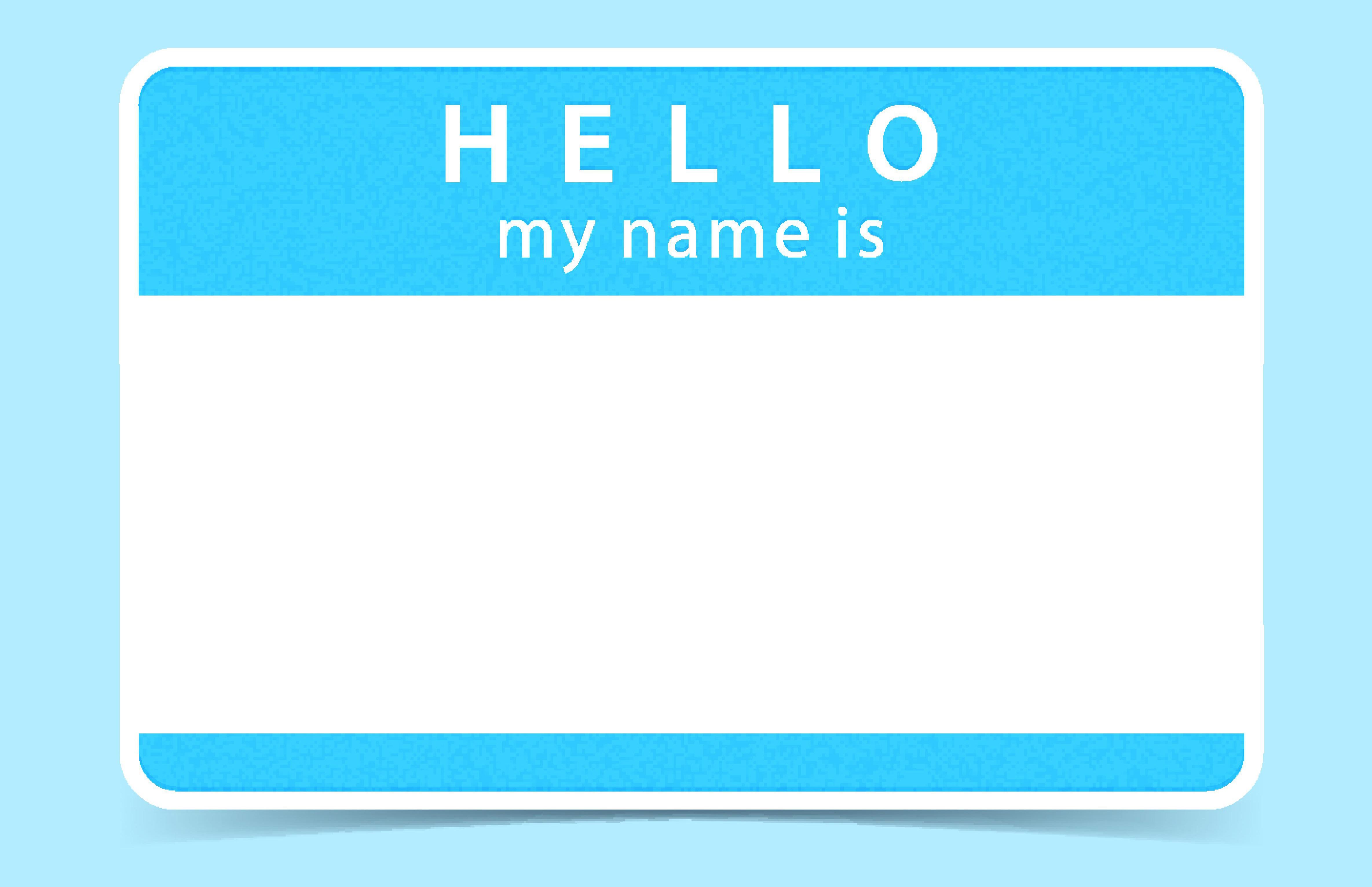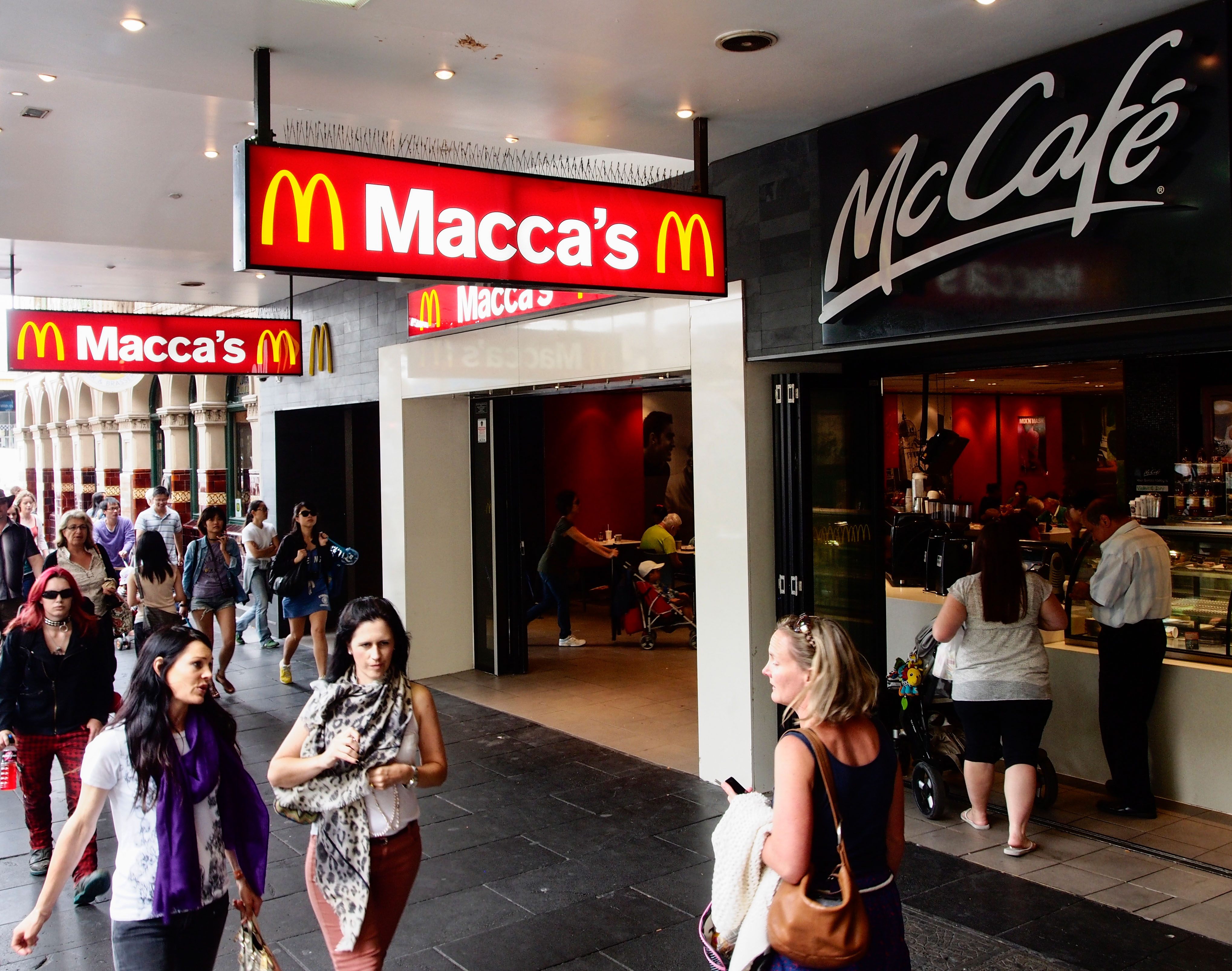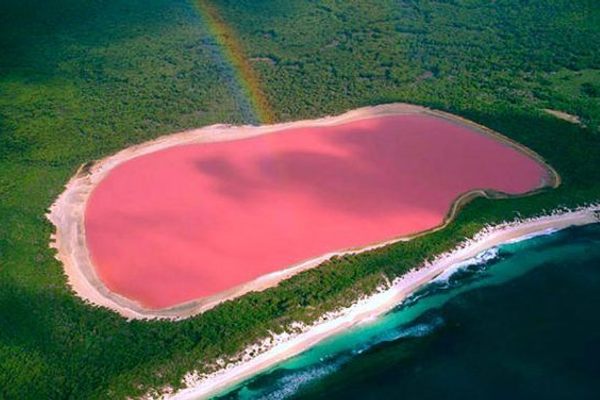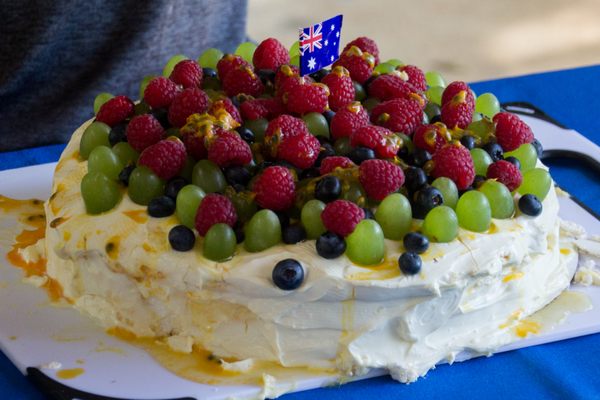How Australian Nicknaming Conventions Turn an Afternoon Into an ‘Arvo’
A thorough explanation for why Dazza ate a sammie at the servo.

If you watch much television from the U.K., Australia, and New Zealand, you’re likely to run into a naming convention that is completely confounding from an outside perspective. Jeremy Clarkson, one of the hosts of the U.K.’s Top Gear, is referred to as Jez or Jezza. Same with Jeremy Usborne, a fictional character on Peep Show. Actor and musician Laurence Fox goes by Lozza; his Twitter handle is @LozzaFox. Harry Styles, of One Direction, goes by Hazza. Actress Teresa Palmer goes by Tez, or Tezza.
The U.K., with a higher number of celebrities that break onto the international scene compared with Australia and New Zealand, is a good source of these weird nicknames. But looking into this more, I found that it’s actually in Australia where we can see the extreme of this sort of naming behavior. Australian English is a jumble of abbreviations, diminutives, and what are called hypocoristics. Here’s an only slightly weird sentence that you might hear in Australia: “I had an avo sammie in the arvo with my sparky mate Daz at the servo.”
“It’s difficult to grow up in Australia and not have a hypocoristic version of your name,” says Evan Kidd, a psycholinguist from Melbourne currently working at the Max Planck Institute for Psycholinguistics. Hypocoristics are certain types of nicknames for people, objects, or concepts, but they don’t work exactly like other nicknames. For one thing, a hypocoristic form of a word isn’t necessarily shorter; often it’s the exact same number of syllables as the full word.
The actual definition of a hypocoristic seems to vary. “I can’t give an exact definition of it,” says Greg Dickson, a linguist at the University of Queensland. “It’s not quite an abbreviation, because it can sometimes actually lengthen a name.” Let’s take, with wild narcissism, the name Daniel. Possible nicknames for Daniel include Dan, Danny, and Danno. There are multiple terms and categories for these types of definitions; the Oxford English Dictionary’s extremely broad definition would put all three of those as hypocoristics. But Dickson sees a difference. Dan is a clipped name, meaning, you delete part of the full name but don’t actually add or reorder any letters. Danny is a diminutive; in English, you make that by adding a “y” or “ie” onto the end of the clipped name. (Other languages do this differently.) But Danno, that’s the hypocoristic one, the weirdest of all.
To Dickson, a name that’s simply clipped—Joseph to Joe, say—is not a hypocoristic name; it doesn’t achieve the same goal. Diminutives—Joey, Chrissy, Bobby—serve a different purpose: they can be infantilizing, used for children more than adults. These names are not exclusively used at a young age, but they are much more common there.
Hypocoristics are a change in a name used to convey something else: informality, affiliation, friendliness, association with an in-group. They are a personalized version of calling someone “buddy.” But in Australia, they are unusually common, and take totally different forms than anywhere else.
Australian English began to veer most dramatically away from U.K. English around World War II. Before that time, says Kidd, U.K. English was so pervasive in Australia that even some Australian personalities—newscasters, actors—would use a version of Received Pronunciation, the very proper dialect of English taught in upper-class England, in their home country. After the war, Australia began to look more inward and to codify its own identity, separate from the U.K. A greater cultural pride emerged, and a better understanding of what makes Australia unique. Australian linguists began studying the way Australians actually speak. The concept of “mateship,” an essential Australian virtue of connection, friendship, and equality, emerged.

Australia, like New Zealand, Canada, and the U.S., also moved sharply away from stratified social structures, even to a greater extreme. “Hypocoristics taps into this very sort of Australian ethos having to do with informality,” says Dickson. “We Australians very much avoid using titles.” That extends to everyone: professors are addressed by their first name, rather than as, say, Professor Dickson. Politicians are addressed by their first names rather than by title, unlike in the U.S., where we have Secretary Tillerson and Senator Cuomo. The idea of a first name being used on the floor of Congress, or in a presidential debate, is totally foreign to Americans. But that’s the standard in Australia.
Here’s the problem: English is not actually very well-adapted to convey a notion of informality and equality. Other languages, like Spanish and Italian, have formal and informal forms of address, for pronouns and verbs. Many languages, including most Slavic languages, have codified diminutive forms which can convey intimacy. English is pretty limited in that sort of thing; we have diminutives, but they can be infantilizing, and this can be seen as mocking or insufficiently respectful. (You see this in tweets quite a bit; someone addressing Donald Trump as “Donny” is being rude.)
If an English-speaking population wants to convey informality and affiliation, there aren’t really any good ways to do it that are built into the grammar of the language. So some dialects, like Australia’s, just come up with their own. Those don’t apply only to names: in Australia, an afternoon is an “arvo,” an electrician is a “sparky,” a small beer is a “stubbie,” a gas station (or service station) is a “servo.”
Some of these kinds of informal terms are also found in the U.K.; a TV is a “telly,” a cigarette is a “ciggie,” that kind of thing. Australia’s reach is broader and more intricate, veering out from the diminutives most common in the U.K. to this whole range of hypocoristics. One estimate finds that 4 percent of the entirety of Australia’s lexicon is hypocoristics.
Kidd told me that it takes hardly any time, after meeting someone, for them to come up with a hypocoristic version of your name. This is something that would, I think, be sort of uncomfortable for an American or Canadian: we are used to having some sort of control over the way we’re addressed. For myself, my given name is Daniel, and I go by Dan. If someone was to call me “Danny,” I would, at some point, probably correct them. “In Australia, it’s very unusual for anyone to correct you back to the formal version,” says Kidd. “It’s a nice thing when it happens, really. You accept this more informal, closer way to interact.” Talking to Australians, I would very quickly become “Danno,” or “Dans,” or some more creative alteration.
There are dozens of possible changes that can be made to names in Australia. Those with surnames that begin with “Mac” are often called “Macca.” (McDonald’s, in Australia, advertises itself as Macca’s, sort of jokingly.) “Warwick” or “Eric” might be changed to “Wocker” or “Ecker,” and maybe spelled “Wocka” or “Ecka.” “Steve-o” can be anyone named Steve, not just members of the Jackass crew.

You can look at this tendency to sort of crowd-source nicknames from a darker angle than in-group affinity, too. Hypocoristic nicknames are extremely common in the seedier corners of the British press. The Daily Mail and other tabloids are very frequent users of hypocoristics: more often than not, Cheryl Tweedy is “Chezza.” There’s a lot to read into that; the way tabloids interact with celebrities is a well deep enough for dozens of books. In this case, does the nickname bring together the reader and the celebrity, in a “they’re just like us!” sort of way? Or is it a way of taking someone down a peg, reducing an elevated celebrity in stature?
Kidd told me that Australia’s tabloid culture is very minimal compared to the U.S. or U.K., but that the idea of egalitarianism can end up sort of mean and cutting in Australia. The phrase “tall poppy syndrome” is used not infrequently in Australian writing and thinking; it’s a way to describe the tendency to scorn any sort of elevated status. (It’s a reference to an Aristotle story in which someone lopped off the tops of the tallest flowers to signify the need to destroy the upper classes. Sort of violent!)
That gives a basic overview of why Australia, and the U.K., is so invested in hypocoristics. But it doesn’t really get at my basic question, which was: How in the world did we get from “Jeremy” to “Jezza”?
There is a rule for how this works. Names which have the letter R in them—Jeremy, Catherine, Sharon, Barry, Murray—are trouble for speakers of non-rhotic variations of English to abbreviate. Rhoticity is a linguistic term for describing when the letter is pronounced; in non-rhotic dialects of English, the sound will be discarded unless followed immediately by a vowel. The dialects of England, Australia, New Zealand, South Africa, and, well, New England are all non-rhotic, which is why the word “car” sounds like “cah.”
This isn’t a problem in any of those names if they’re pronounced fully; there’s always a vowel after the R. But to truncate them would be difficult. Typically hypocoristic nicknames are formed by cutting everything but the first syllable and then either leaving that as-is or adding a vowel. That’s how “Daniel” becomes “Danno”: clip to the first syllable (“Dan”) and add a vowel. (The -o ending is most common for male names; -ie is more common for female names.)
But if you speak a non-rhotic variety of English, that pattern falls apart when dealing with a name with the dreaded R. Cheryl, for example, should be shortened to “Cher,” at which point you can add a vowel or not, as you see fit. But in a non-rhotic variety of English, that’s pronounced “Sheh,” which feels incomplete, as if it needs an ending.

What’s going on here is what linguist Brian A. Taylor calls “reverse rhotacization.” Rhotacization is a change that can be traced through lots of old languages in which the “s” or “z” sound becomes an “r” sound. In English, we can see that in the screwed-up words “was” and “were.” In predecessors to modern English, both of those words had a “z” sound; the Old German form of “were” is wēzum, which eventually had its “z” sound morphed into an “r.” (We don’t know why this happens, but it does, across lots of different languages.)
Anyway, non-rhotic English speakers are doing the opposite here and turning “r” sounds into “z.” There is not a concrete reason for why this happens; aside from the fact that linguists are more comfortable describing how something happens than why, Taylor actually calls this reverse rhotacization “problematic” in a paper. But there is one similar nickname convention, which Taylor calls “truncation + -s.” Kidd says that his name, Evan, is often changed to “Evs.” Other versions include Jacqueline to “Jacks,” Julia to “Jules,” and even David Beckham to “Becks.” It’s one of the most common ways a name is changed in Australia and the U.K.
It’s also the only nickname method that adds a consonant that wasn’t there before. The other ones all add vowels: Johnno, Chrissy, Macca. The fact that in the U.K. and Australia, that R is dropped, that screws everything up. Effectively, all other nicknames just take the first syllable of the name as a base, and all of them end in a consonant—except the ones that end in R, because it’s not pronounced.
So instead of trying to wrangle the transition from “Cheryl” to “Sheh,” you have to figure out a way to end that first syllable in a consonant you’ll actually pronounce. And there’s only one nicknaming convention that adds a consonant, so use that one. Cheryl becomes Chez. Technically, you might spell it as “Cherz,” but you’d drop the R in pronouncing it. Now that you’ve got a base nickname that ends in a consonant, the way all the other ones do, you can alter it from there, turning it into Chezza. For the record, Baz Luhrmann’s real name is Mark. He was given the name Baz by his father, apparently owing to a haircut that made him look like a TV character named Basil. By his own country’s rules, though, he should be known as Maz. Maz Luhrmann.










Follow us on Twitter to get the latest on the world's hidden wonders.
Like us on Facebook to get the latest on the world's hidden wonders.
Follow us on Twitter Like us on Facebook